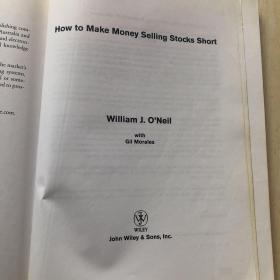How to Make Money Trading Crypto: A Comprehensive Guide
Trading cryptocurrencies can be a lucrative venture, but it requires knowledge, strategy, and discipline. Whether you’re a beginner or an experienced trader, this guide will provide you with a comprehensive overview of how to make money trading crypto.
Understanding the Basics

Before diving into the world of cryptocurrency trading, it’s crucial to understand the basics. Cryptocurrencies are digital or virtual currencies that use cryptography for security. The most well-known cryptocurrency is Bitcoin, but there are thousands of others, each with its own unique features and use cases.
Here’s a quick rundown of the key concepts you need to know:
- Crypto Wallets: These are digital wallets where you store your cryptocurrencies. There are various types of wallets, including software wallets, hardware wallets, and paper wallets.
- Exchanges: These are platforms where you can buy, sell, and trade cryptocurrencies. Some popular exchanges include Coinbase, Binance, and Kraken.
- Market Cap: This is the total value of all the coins in circulation. It’s calculated by multiplying the current price of a coin by its total supply.
- Volume: This is the total number of coins traded over a specific period. It’s an indicator of market liquidity.
- Market Trends: These are the overall movements in the cryptocurrency market, which can be influenced by various factors, such as news, regulatory changes, and technological advancements.
Choosing the Right Cryptocurrency

With thousands of cryptocurrencies available, it can be challenging to determine which ones to invest in. Here are some factors to consider when choosing a cryptocurrency:
- Market Cap: Focus on cryptocurrencies with a significant market cap, as they are more likely to be stable and have a higher likelihood of long-term growth.
- Use Case: Look for cryptocurrencies with real-world applications and a clear value proposition.
- Team and Community: Research the team behind the cryptocurrency and the community surrounding it. A strong team and active community can indicate a project’s potential for success.
- Technology: Consider the technology and infrastructure supporting the cryptocurrency, such as its blockchain, consensus mechanism, and scalability.
Developing a Trading Strategy

A trading strategy is a set of rules and guidelines you follow to make informed trading decisions. Here are some key components of a successful trading strategy:
- Entry and Exit Points: Determine the conditions under which you will enter and exit a trade. This can include technical indicators, price levels, and market trends.
- Stop-Loss and Take-Profit Orders: Set stop-loss and take-profit orders to minimize potential losses and lock in profits.
- Position Sizing: Determine how much capital to allocate to each trade based on your risk tolerance and overall investment strategy.
- Risk Management: Implement risk management techniques to protect your investment and avoid overexposure to any single cryptocurrency.
Using Technical Analysis
Technical analysis is a method of evaluating assets by analyzing statistics generated by market activity, such as price movement and volume. Here are some popular technical analysis tools and indicators:
- Price Charts: Analyze price charts to identify trends, patterns, and potential entry and exit points.
- Volume: Monitor trading volume to gauge market sentiment and potential reversals.
- Technical Indicators: Use indicators like moving averages, RSI (Relative Strength Index), and MACD (Moving Average Convergence Divergence) to identify overbought or oversold conditions.
- Chart Patterns: Recognize chart patterns, such as head and shoulders, triangles, and flags, which can indicate potential market movements.
Staying Informed
Staying informed about the cryptocurrency market is crucial for successful trading. Here are some ways to stay updated:
- News and Updates: Follow reputable news sources, such as CoinDesk, CoinTelegraph, and Bloomberg, to stay informed about market developments and regulatory changes.
- Social Media: Follow influential traders, analysts